#achilleion palace
Explore tagged Tumblr posts
Text

Achilleion Palace Garden, Corfu, Greece
Michel Struharova
4 notes
·
View notes
Text

🇬🇷 The terrace of Achilleion on the island of Corfu in Greece. Achilleion (Greek: Αχίλλειον) is a palace built for the Empress Elisabeth of Austria after the tragic death of her only son in 1889. The photo was taken by an unknown photographer, probably in the 19th century. Digitally enhanced to compensate for fading.
#Corfu#Achilleion#Greece#Ελλάδα#Κέρκυρα#palace#architecture#Fascinating Europe#Europe#Architectural Revival#heritage#photography#photo#black and white#vintage#foto#black and white photo#european heritage
6 notes
·
View notes
Text

Achilleion on Corfu built for
Empress Elisabeth of Austria, also known as Sisi,
she had this summer palace built as a refuge.
81 notes
·
View notes
Text
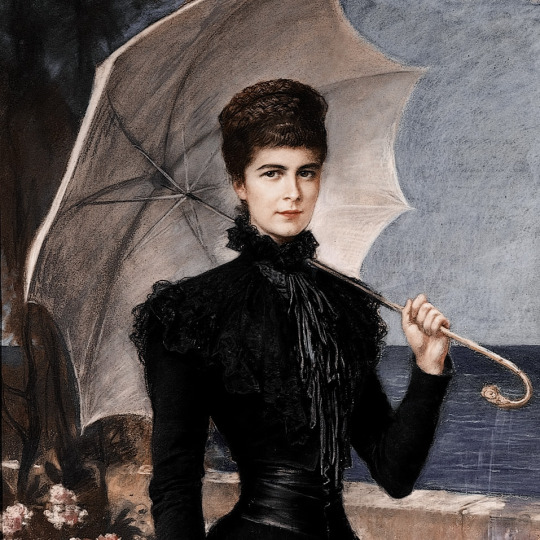

Empress Elisabeth of Austria and her Corfiot palace through the eyes of the Greek royals.
Greece was destined to offer the Empress Elisabeth the hospitality of its soil. She chose Greece as the country where she would hide herself and her sorrow. At Corfu she bought a site of ground from an old Corfiote Statesman called Braïla, and on it she built the Palace which she called "Achilleion", after her hero Achilles, whose statue was in the middle of the top garden terrace, and represented him at the hour of his death, drawing the arrow out of his heel. When in Corfu, it was understood, she was to be strictly incognito, and her wishes were always respected. One day, suddenly, when we least expected it, she arrived at Athens, having travelled by the ordinary steamer, and called at the Palace accompanied by a lady -in-waiting. She asked the porter whether she could see the King and Queen. On the porter's inquiring who she was, she replied she was "the Empress of Austria." Whereupon we were brought down to verify that statement . It seemed impossible╴but it was the Empress of Austria! Needless to say she obtained her interview, and after half an hour's conversation she took her departure, insisting that her visit should not be returned by my parents. As she was anxious to study Greek culture, she decided to learn modern Greek, and applied herself to the task with great energy and perseverance. She engaged a tutor for Greek conversation. Her first was Dr. Christomanos, an author and poet, who wrote a charming life of the Empress, which was translated into several languages. Her last was Count A. Mercati, who afterwards became Master of King Constantine's household. Accompanied by her tutor, the Empress used to go off on a five or six hours' walk, all over the island; and even for the picturesque ceremony of combing and brushing her hair the tutor had to be present, talking Greek to her all the time. She learnt to speak Greek quite faultlessly. In the arrangement of her house the Empress took great pride, setting up the statues of all her new "Gods"; Sophocles, Euripides, Plato and Aristotle. She also had a statue of Heine, the poet, erected in a shrine. When the Kaiser bought the Achilleion, he at once banished Heine, and raised Achilles from his recumbent position into a standing War Lord, with gilded helmet and shield, so that the first sight of Achilleion should be his glittering helmet. It is a pity that the Empress tried to improve the natural beauty of the spot. Her lack of taste, I may even ungraciously say her eccentricities, were almost an eyesore. There was a grotto of artificial rock and mirrors, destined as a home for monkeys, who luckily never came to inhabit it. Though the island abounded in oranges, she sent to Italy for her fruit. The view from the terrace over all the plain of Corfu, with its olive groves groups cypresses on one side and the sea and the mountains of Albania on the other one of the most exquisite I have ever seen.
The memoirs of His Royal Highness, Prince Nicholas of Greece and Denmark, My fifty years, 1926.
I was a child when the Empress came to Athens and saw her only once or twice, but I remember her more vividly than many people I knew far better. I imagine it was the same with everyone who came in contact with her. Her brilliant, beautiful and restless personality left an indelible impression. She was so enchanted with Greece that she decided to build a villa in Corfu. The site she chose could not have been more beautiful, about twelve miles outside the town, set on a high hill overlooking the sea on one side and a chain of mountains on the other. But she was too impatient even to look at the plans and gave the architect carte blanche. So instead of the simple cottage she had intended he erected an orate and hideous palace lavishly adorned with frescoes, statues and bronzes of every description. This atrocity cost the Austrian Govemment twelve million crowns, I believe. The Empress's life was dominated by the fear of losing her beauty. As she grew older it became an obsession. Hours were spent every moring brushing the glotious brown hair that she wore gathered into two great plaits coiled around her head. This hair-brushing was a matter of solemn ritual. Any hairs that fell out during the process were carefully collected and presented to the Empress on a silver salver. If their number proved to be too many the entire day was blackened to her. Once a captain of a Russian gunboat reported that he had seen a yacht coming into the Piraus harbour with a woman seated on the deck whose mass of hair reached down to the ground while two attendants stood behind her brushing it. " That could only be the Empress of Austria." said my father, when he heard the story. Later in the day a carriage drove up to the Palace and a mysterious visitor was announced, a lady who refused to give her name. It was, as we expected, the Empress Elizabeth. She insisted on preserving a strict incognito while she was in Greece, although it seemed rather unnecessary, since everyone knew who she was. She detested nothing so much as being photographed, or even looked at for that matter, and always carried a large fan with her on her walks, so that she could unfurl it and hide her face from the passers-by. The Empress was a fine woman in many respects, far finer, I think, than most of her biogtaphers have represented her. Intelligent, intuitive, sensitive, she had all the qualities to make a great empress. But she was tragically lacking in a sense of proportion. Even in the small issues of everyday life she had no idea of modera-tion. She could not take anything up without making it a mania. While she was in Corfu she set herself to learn Greek, although she had gone there to rest. Now Greek is a complicated language and its study is hardly to be recommended as a restful pursuit. The Empress certainly did not regard it as such either for herself or any one else, for she wore out her two teachers, Count Mercati and Mr. Christomanos. Every day she walked ten or twelve miles with one or the other, talking Greek all the way and, even during the hair-brushing ceremony, one of them was always present reading to her. Her figure became another obsession with her. Although she was exaggeratedly slender when she came to Greece (she weighed, I believe, only seven stones) no Hollywood film star could have followed out a more Spartan regime. Her constant dieting made her irritable and depressed. Even when she lunched with my mother and father she would often eat nothing but a salad and some fruit, and she would start off immediately afterwards on one of her exhausting walks, skimming over the ground like a restless, beautiful wraith.
The memoirs of His Royal Highness, Prince Christopher of Greece and Denmark, 1938.
#long af post i’m sorry#empress elisabeth of austria#empress sisi#greek royal family#prince nicholas of greece and denmark#prince christopher of greece and denmark
121 notes
·
View notes
Note
Which do you think are the best castles in Greece?
Definitely the Palace of the Grand Master of the Knights of Rhodes.
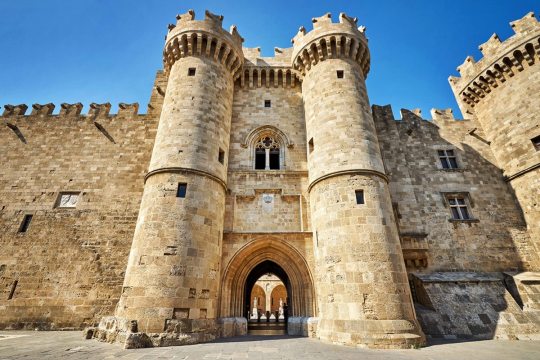
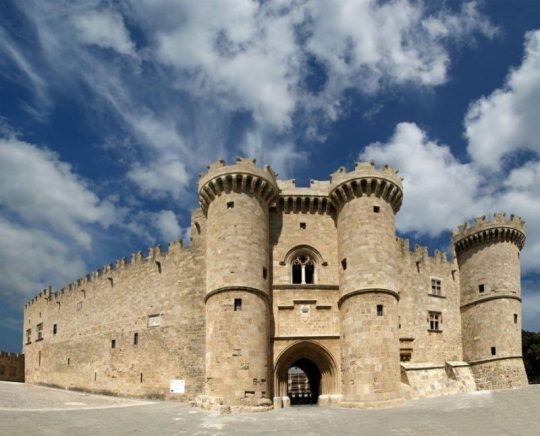

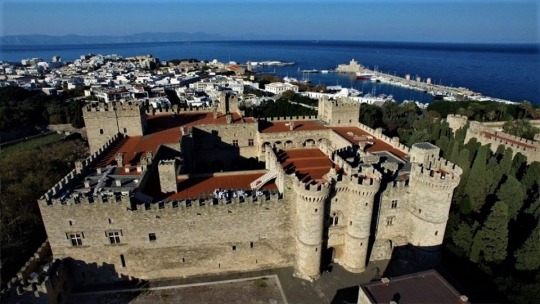

Fun fact: The makers of Game of Thrones originally considered the medieval town of Rhodes as a setting for King’s Landing. I am not sure,but I think the Greek state committees about film setting permissions were taking so long to decide that the makers were like “ok sod this” and went to Dubrovnik of Croatia instead.
I think other very good ones may be the ones in Monemvasia, Mystras, Methoni, Nafplio, Kos and Patmos but I haven’t been to any of these yet. Kerkyra (Corfu) also has beautiful fortresses but I don’t know if you include them in your definition of castles. So I don’t know if I also should mention Thessaloniki, for example.
I really like the Byzantine castle of Platamon. I believe it must have been really beautiful in its heyday and of course it’s built in a fantastic area.
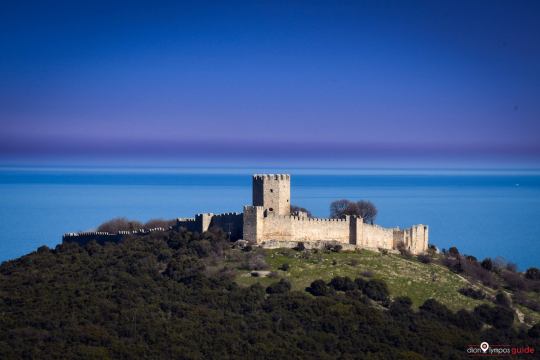

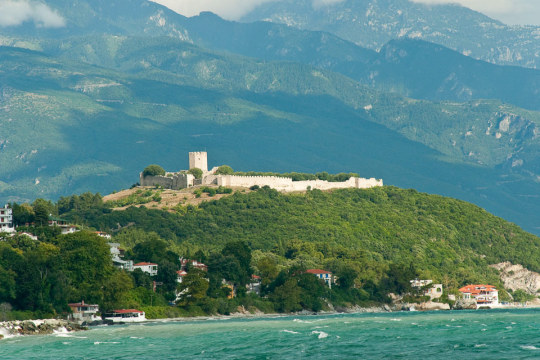

Then Corfu has the best palaces (Old Palace, Achilleion Palace, Mon Repos) but I put them in the category of palaces, not castles. Same with Athens. I don’t include Tatoi or the Old Parliament because they are palaces.
#greece#europe#castles#medieval#middle ages#byzantine culture#crusaders#Rhodes#Dodecanese#pieria#platamon#Macedonia#mainland#greek culture#greek islands#greek facts#anon#ask
174 notes
·
View notes
Text
UHHHHH did anyone else know that the palace elisabeth built on corfu after rudolf died (she even put up a memorial statue!!!) was um. PURCHASED BY KAISER WILHELM II in 1907.......... or was i supposed to learn this while browsing book catalogues online and ending up on wikipedia by myself...
(apparently the rudolf memorial statue was brought to mayerling before elisabeth died which is sad. wouldve been funnier if it was just There and wilhelm walked around like ":) rip rudolf i guess")
wilhelm did put a statue of elisabeth there lol, replacing a statue elisabeth herself had put there of heinrich heine hshshs
7 notes
·
View notes
Text

Elisabeth of Austria
Artist: Franz Xaver Winterhalter (German, 1805–1873)
Title: Empress Elisabeth of Austria in Courtly Gala Dress with Diamond Stars
Genre: Portrait
Depicted People: Empress Elisabeth of Austria
Date: 1865
Medium: Oil on Canvas
Collection: Kunsthistorisches Museum
In Winterhalter’s 1865 portrait, Empress Elizabeth of Austria (known as Sissi) wears a white satin evening dress covered with thousands of silver foil stars shimmering under the layer of tulle. The dress, thought to be designed by Worth, follows fashionable trends of the era, but also has singular touches, like the stars, befitting her status as Empress.
Elisabeth (born Duchess Elisabeth Amalie Eugenie in Bavaria; 24 December 1837 – 10 September 1898), nicknamed Sisi or Sissi, was Empress of Austria and Queen of Hungary from her marriage to Emperor Franz Joseph I on 24 April 1854 until her assassination in 1898.
Elisabeth was born into the Ducal royal branch of the Bavarian House of Wittelsbach but enjoyed an informal upbringing before marrying her first cousin, Emperor Franz Joseph I, at 16. The marriage thrust her into the much more formal Habsburg court life, for which she was unprepared and which she found suffocating. Early in the marriage, she was at odds with her mother-in-law, who was also her maternal aunt, Archduchess Sophie, who took over the rearing of Elisabeth's daughters, one of whom, Sophie, died in infancy. The birth of a son, Crown Prince Rudolf, improved Elisabeth's standing at court, but her health suffered under the strain. As a result, she would often visit Hungary for its more relaxed environment. She came to develop a deep kinship with Hungary and helped to bring about the dual monarchy of Austria-Hungary in 1867.
The death of Elisabeth's only son and his mistress Mary Vetsera in a murder–suicide at his hunting lodge at Mayerling in 1889 was a blow from which the Empress never recovered. She withdrew from court duties and travelled widely, unaccompanied by her family. In 1890, she had the palace Achilleion built on the Greek island of Corfu. The palace featured an elaborate mythological motif and served as a refuge, which Elisabeth visited often. She was obsessively concerned with maintaining her youthful figure and beauty, developing a restrictive diet and wearing extremely tightlaced corsets to keep her waist looking very small.
While travelling in Geneva in 1898, Elisabeth was fatally stabbed in the heart by an Italian anarchist named Luigi Lucheni. Her tenure of 44 years was the longest of any Austrian empress.
#portrait#elisabeth of austria#empress elisabeth of austria#franz xaver winterhalter#fashion#courtly gala dress with diamond stars#19th century art#19th century austria#austrian royalty#austrian queen#austrian empress#landscape#queen of hungary
7 notes
·
View notes
Text

“In the midst of chaos, I found there was, within me, an invincible calm. In the midst of winter, I found there was, within me, an invincible summer.”
Albert Camus
A pencil drawing of a detail of “The Dying Achilles” statue (Ancient Greek: Αχιλλεύς θνήσκων), created in Berlin in 1884 by German sculptor Ernst Herter. This statue forms the centrepiece of the Achilleion Gardens located at Achilleion Palace (Greek: Αχίλλειο or Αχίλλειον) in Gastouri (Γαστούρι) on the Island of Corfu. Residence of Empress (Kaiserin) Elisabeth of Austria, also known as Sisi. The palace was designed by Italian architect Raffaele Caritto and was built on an area of 200,000 m2.
© 2023 P-S Lindblom
Available in limited edition prints https://www.instagram.com/pericles_lind?igsh=MWJoZzQ3NW92bDh6ag%3D%3D&utm_source=qr
12 notes
·
View notes
Text

Bard (Orctober 2024)
Day seventeen!! 💚⚔
Possibly my favorite prompt, AND return of a "Tock the Gnome" background character that has yet to appear on-page (but hopefully will eventually). Orcs in this realm don't have bardic magic yet, as they don't have magic in general, BUT if anyone were to make it happen anyway, it would be her.
To that impact, this in itself is a spell for Orcish awesomeness 💗
Sigil details:

AND those notes chosen on purpose.
(Pose reference: Marble statue of Terpsichore, goddess of dance and chorus in the Courtyard of the Muses, Achilleion Palace, Corfu, Greece.)
~
Bonus art and stories ~ Prints, comics and more!
#orctober#orc#orc woman#bard#faerie#music#magic#orcs#orctober 2024#sigils#sigil magic#fantasy art#pagan art#body posi art#drawing challenge#indie comics#queer comics#tock the gnome#ooh shiny
5 notes
·
View notes
Text





Corfu (2) (3) (4) (5) by Jakub Janusz
Via Flickr:
(1) Monastery of Paleokastritsa (2) (3) (4) Achilleion Palace
#monastery#courtyard#garden#trees#potted plants#columns#palace#stateus#pay phones#greece#ionian islands#corfu
5 notes
·
View notes
Text
New idea for makoharu in greece: So makoto and haru go to greece for a short vacation before haru competes in Athens and they visit corfu bc 1) it's an island and 2) the plot demands it. They visit the tourist spots and makoto, our classical literature enthusiast, goes on to narrate all about the historical and cultural contexts of several pieces. When they come to the statue of achilles in the achilleion palace, makoto tells haru about the story of achilles, how he is the best warrior of his generation, and compares him to haru for a bit, saying that in a way haru is also the best of his nation (at least in swimming), and how he went mad after his "best friend"'s death (bc makoto only learned about illiad in school, ok? No tumblr) haru makes a side comment about how the death of achilles is tragic, chasing death without care for himself after patroclus' death, but then the beach scene in hs2 and in s1e6 flash in his memory, and adds that he couldn't imagine experiencing such grief, and that he doesn't wish it upon himself or anybody else. Ofc makoto doesn't get the undermeaning, but anyway...
Fast forward to haru getting a dream of being in a battlefield and yet he couldn't recognize anything. Someone calls him an unfamiliar name, and oddly, he follows, and they present him a bloody, maimed corpse of an unfamiliar man, and he feels this weird, disgusting, unwanted feeling deep within him, and he gets the urge to grieve and mourn for the man he doesn't know, but he blinks and suddenly it's makoto and they're at that night in summer camp, and makoto isn't breathing. He performs chest compressions, and makoto splutters, but instead of waterit's blood, and he says "haruka" in his raspy voice. Alarmed, haru shakes makoto, only to find his hand feeling wet, and he looks down and makoto's chest and stomach are splurging blood, a deep and wide gaping, punctured wound present when it wasn't there before.
Just like the corpse from the battlefield.
The panic turns up to maximum, alarmed and afraid and desperate to save makoto. The same unwanted feeling returns, and haru is still confused why is this happening. Why makoto is dying in his arms from a bloody injury like he came from battle, why he feels something for the dead man in the battlefield, why makoto is repeating a word (maybe a name) he couldn't understand, why can't he help him. He wakes up, and he feels around beside him, looks around, and he sees makoto in the other bed, still and unmoving. The fear creeps in.
Is he...
Makoto turns on his back, and haru sighs deeply. Still, he walks to makoto to be sure. He checks his breathing, his pulse, his body if it's still warm, and he looks under the cover to check for any fatal bloody wound. He's relieved. Makoto is alive and well. Still, the fear doesn't disappear. The nightmare left haru in a constant state of worry. Did it have any meaning? Was it a premonition? Is makoto's life really going to be in danger in the future? From something as deadly as a grave injury? The anxiety messes him up, and it ruins his oh-so precious sleeping hours, as well as his concentration in training. Everybody sees it, that something was bothering haru. But he couldn't tell anyone that what's bothering him is a stupid nightmare of makoto dying in his arms and the feeling of pure wretched agony he gets every time the image of his greatest fear flashes in his mind. He never managed to admit it to nagisa before and he will never admit it to anybody else now.
He loses in the freestyle event. He performs very badly that the swim coach decides to drop him out from the medley relay. Haru gets mad at this. He tells the coach how unfair it is and how he spent hours each day training with the rest of the relay team, only to be removed without notice. How he sacrificed a lot only for it all to not pay off just because the coach "said so". Haru storms off, and Makoto offers to follow to calm him down, and haru complains how it isn't fair to be removed from the relay just bc he lost in his individual event. Makoto tells that haru has been off for quite a while, and that if he told him what was wrong, maybe he can help him. But haru can't tell him. He may cause makoto to panic, and ofc he refuses to consider that the thought plaguing his mind may come true by jinxing it. He tells makoto to just leave him, and that he will never be able to understand him or help with his problem, and he runs out of the venue and makoto follows after him. They continue to fight in the middle of the street and makoto gets hit by a car. The nightmare, nagisa's question about his greatest fear, makoto drowning, makoto at the beach in middle school, makoto's story about the warrior who went mad after his best friend's death... they're all racing in haru's mind, and all he could do in there was run to makoto's bloody limp body, clutch him towards himself and wail in agony, imploring him to wake up, because no, he almost lost him several times before, and the pain this time is unbelievably heavy, like he lost makoto to death before, and it's now happening before his very eyes. He calls for help, and the nearby locals come to assist, and haru is desperate for their help, whatever that can save makoto. He's speaking to them in whatever way he thinks that they somehow understand, and he calls someone to come with him in the ambulance, and nao comes, not wanting to disrupt the other athletes with worrying news about makoto's condition.
They arrive at the hospital and haru communicates in broken english with an equally badly English-speaking greek nurse, and when haru states makoto's name nao interrupts him, asking him why he's stating a different name for makoto's and why he's telling her that it's patroklos menoitiades? Nao clarifies that the patient's real name is makoto tachibana, a japanese citizen, not a local greek like haru makes it sound like. Haru wonders why he called makoto patroclus, and nao asks him to get some rest.
He dreams of war, of arguing with a man with kind eyes that remind him of someone, of the terrible pain of losing your most beloved, of endlessly wailing the name "patroclus", of turning mad and no longer valuing anything, including his honor and his life, for what he loved most was already gone. And then and there he realizes that the reason why he felt the most heart-wrenching agony every time his mind teased him the possibility of losing makoto in the most horrible way; why he felt the greatest fear every time fate gives him a glimpse of what it's like to lose makoto forever, where he can't follow him; why he fears the possibility of losing his best friend in a way that it almost drove him mad- it was all because he went through all of it before. He is, was achilles, and he lost patroclus in his past life, in a way that is partially his fault, and oh gods did he let it happen in this life again... makoto was, is patroclus, and he let him get hurt because of himself once again. Guilt plagues him, and images of their fight (both in the previous life and their recent) flash in his mind, and now, instead of briseis, faces of all of their friends replace her, all expressing contempt at haru. It was his fault this happened to makoto.
A different dream, this time of patroclus, asking for peace, acceptance, for him to finally let him rest, let him go.
To where he can't follow.
but no. Not yet. Haru (achilles) cannot let him go just yet. Makoto (his patroclus) is still alive. He's still here. He still hasn't left.
He comes to see makoto the next day, and he knows, feels, that the man in his dream, patroclus, and makoto, are one. He sees it, the way their bodies have almost the same shape; the way both their hairs are wild and unkempt and unruly, albeit patroclus used to have thicker and curly locks, and way darker than makoto's. The way their eyes are gentle and warm and kind and bright, and the way they look... human. The most human of all, far different from everybody else seeking fame and glory, like seeking a way to immortalize themselves. And the way they treated him, never as a weapon of war, nor a sight to behold,but rather, another human (if they do put themself beneath him sometimes). He wishes for him to wake up. He doesn't wish to experience what he did before, of losing patroclus, and everything with him. Patroclus, makoto, is the half of his soul, his most beloved, the best person in his life, and losing him is what he fears most.
(idk where I'm going with this)
Anyway makoto wakes up and he tells him everything and apologizes for both his actions in their past life and in the present. Maybe makoto all this time was also getting memories of patroclus and so was trying his best to prevent haru from doing something reckless like achilles did which led to his death against paris. Anyway they reunite in this life both as "haru and makoto" and "Achilles and patroclus". Everybody is surprised when haru returns with a slightly different personality. He becomes more open, and also more expressive about his wants and dislikes (and also his affection for makoto)
Also it would be fun if all the other gays were having recollection of their own past lives as well. Idk what drama rin and sousuke are causing as alexander the great and hephaestion. And asahi as aeneas, maybe he gets a reawakening and finds a boost in confidence when he finally earns his first gold in butterfly and gets picked for the relay after rin gets dropped out for causing gay macedonian drama. Which he doesn't mind, bc maybe he can once again worship his hephaestion's thighs, which is still worth worshipping as sousuke.
#makoharu#free!#free#tachibana makoto#nanase haruka#makoto tachibana#patrochilles#tsoa#it's 2023 already and i'm still obsessing over patrochilles! makoharu#the brainrot is 2 years already it's now brain fermentation#the illiad#haruka nanase#achilles#patroclus#achilles x patroclus#the song of achilles#sourin#slight#mentioned at the end#alexander x hephaestion#also#asahi shiina#shiina asahi#aeneas#illiad#yamazaki sousuke#sousuke yamazaki#rin matsuoka#matsuoka rin#don't mind my tags just desperate for attention hihi
8 notes
·
View notes
Text

The Triumph of Achilles by Franz von Matsch.
This giant painting is the central feature of the stairwell in the Achilleion Palace built by Empress Elisabeth of Austria on the island of Corfu. It depicts the triumphant Achilles dragging the dead body of Hector around the funerary mound of his beloved Patroclus whom Hector killed with the help of the god Phoebus Apollo. The inhumanity in regards to both the living and the dead is to me distasteful in the extreme. Of course, Homer's Iliad ends before Achilles meets his own foretold death. Such violence makes me think of the poor Ukrainian people. I say often that the actors, the sets, the costumes, and the technology may change. But, the roles remain the same repeating the same actions as before throughout history perhaps expecting a different result. That is the definition of insanity.
3 notes
·
View notes
Text
Sissi's Palace - exploring the Achilleion in Corfu
In mid September this year we visited the Achilleion, a few miles south of Corfu Town. As it was pouring with rain we thought it would be a good opportunity to spend some time inside and dry off a bit. Unfortunately, the Palace was closed due to renovation work so we had to shelter as best we could while looking round the gardens. The Achilleion is a palace built by Empress Elizabeth of Austria,…

View On WordPress
0 notes
Text
The Things to Do & Places to Visit in Greece
Greece, with its rich history, stunning landscapes, and vibrant culture, offers an array of experiences for every traveler. From ancient ruins that echo with the stories of the past to picturesque islands and bustling cities, Greece is a destination brimming with attractions. Athens, the capital, invites visitors to walk among the remnants of ancient civilizations at iconic sites like the Acropolis and the Parthenon. For those seeking natural beauty, Santorini's dramatic sunsets and unique beaches provide a breathtaking escape. Mykonos, with its lively nightlife and charming town, offers a blend of relaxation and excitement.

Beyond the well-trodden paths of Athens and Mykonos, Greece's diverse regions promise unforgettable adventures. Delphi, once considered the center of the world by the ancient Greeks, reveals its mysteries through its ancient ruins and archaeological treasures.
Here are some of the things to do and places to visit in Greece.
1. Visit the Ancient Ruins of Athens:

Greece's capital city, Athens, is well-known for its historic sites. The most famous location is the Acropolis, which is home to the Parthenon, a temple devoted to the goddess Athena. Another historical site that provides an insight into ancient Greek daily life is the Ancient Agora. For additional historical investigation, don't miss the Roman Agora and the Temple of Olympian Zeus.
2. Unwind on the Gorgeous Beaches of Santorini:
Santorini's stunning beaches are well-known. Red Beach is well-known for its crystal-clear waters and dramatic red volcanic sand. Perissa Beach provides a distinctive beach experience because of its black sand. Try Kamari Beach for a more sedate atmosphere. Every beach offers a wonderful view of the island's pristine waters and breathtaking rocks.
3. Take a Tour of Mykonos Town:

Mykonos is renowned for its enchanting town and exciting nightlife. The charming, meandering lanes of Chora, Mykonos Town, are dotted with brightly coloured stores and whitewashed buildings. Explore Little Venice, where you can view buildings perched above the water, and visit the famous windmills. You can also have dinner at a taverna by the sea.
4. Go to Delphi's Historic City:
Delphi, perched atop Mount Parnassus, was originally revered by the ancient Greeks as the center of the world. See the Temple of Apollo, the location of the renowned Oracle of Delphi. Discover the historic theatre and the antiquities kept in the Delphi Archaeological Museum.
5. Explore the Rich History of Crete:

Greece's largest island, Crete, is a culturally and historically rich place. Discover the Minoan Palace in Knossos, which provides information about one of the earliest civilizations in Europe. Take a trek down the Samaria Gorge to experience the spectacular natural splendor, or visit the quaint town of Chania with its Venetian harbour.
6. Savor Corfu's Serenity:

The Ionian Sea Island of Corfu is renowned for its tranquil atmosphere and verdant surroundings. See the charming squares and Venetian architecture of Corfu Town. Take a nap at Paleokastritsa Beach or tour the Achilleion Palace, constructed by Austria's Empress Elisabeth.
7. Learn about the Monasteries of Meteora:

The monasteries of Meteora, which are perched on massive rock formations, are well-known. These monasteries provide breathtaking views and a distinctive historical experience; some date back to the fourteenth century. Take in the stunning scenery of the Meteora region while touring the monasteries.
Conclusion
Greece offers a wealth of experiences and attractions that cater to all types of travelers. From the ancient marvels of Athens to the idyllic beauty of its islands, there is something to captivate everyone. Whether you're exploring the historic ruins of Delphi, enjoying the sunset views in Santorini, or immersing yourself in the lively atmosphere of Mykonos, Greece’s rich culture and stunning landscapes ensure a memorable visit. Each destination brings its own set of attractions and activities that highlight Greece’s rich heritage and natural splendor. To fully enjoy these remarkable sites, it’s important to ensure that you have the necessary travel documents. Securing a Greece visa is a crucial step in planning your trip. By obtaining your Greece visa in advance, you can avoid any last-minute hassles and focus on making the most of your visit.
0 notes
Text
The Must visit attractions of Greece
Feel the allure of Greece's sun-kissed shores and ancient wonders! Dive into azure waters, explore myth-laden ruins, and savor olives under cerulean skies. Whether mesmerized by Santorini's whitewashed cliffs or Athens' Parthenon, Greece captivates with its rich history and vibrant culture. Plan your adventure worry-free with simplified Greece visa processes, ensuring smooth travel to this Mediterranean gem!
Here are some must-visit attractions in Greece:

1. Acropolis of Athens:
One of the most iconic landmarks in the world, featuring the Parthenon, Erechtheion, and other ancient Greek structures overlooking Athens.
2. Santorini:
Famous for its breathtaking sunsets, whitewashed buildings with blue domes, and volcanic landscapes. Don't miss Oia and Fira.
3. Delphi:
A UNESCO World Heritage site known for its ancient ruins, including the Temple of Apollo and the Delphi Theater, set against a stunning mountain backdrop.
4. Meteora:
A unique rock formation hosting monasteries perched on top, offering incredible views and a glimpse into Greek Orthodox spirituality.
5. Mykonos:
Known for its lively nightlife, beautiful beaches, and charming Cycladic architecture with narrow streets and whitewashed buildings.
6. Olympia:
The birthplace of the Olympic Games, featuring ancient ruins such as the Temple of Zeus and the original Olympic stadium.
7. Crete:
Greece's largest island with diverse landscapes, from stunning beaches like Balos and Elafonissi to the ancient Minoan palace of Knossos.
8. Rhodes Old Town:
A medieval city with impressive fortifications, winding streets, and historical sites like the Palace of the Grand Master and the Street of the Knights.
9. Corfu:
An island with Venetian architecture, beautiful beaches, and historic sites such as the Old Fortress and Achilleion Palace.
10. Thessaloniki:
Greece's second-largest city with a rich history, featuring Byzantine churches, the White Tower, and a vibrant food and cultural scene.
Conclusion
With its breathtaking landscapes and rich history, Greece beckons travelers to explore its iconic attractions. From the ancient ruins of Athens to the stunning sunsets of Santorini, each destination captivates with its unique charm. For those planning to visit, ensuring a valid Greece visa is essential to unlock these treasures hassle-free. Embrace the allure of Greece's cultural tapestry and natural beauty—it's an experience that promises memories to last a lifetime.
Read more: Norway visa Sweden visa Egypt visa
0 notes
